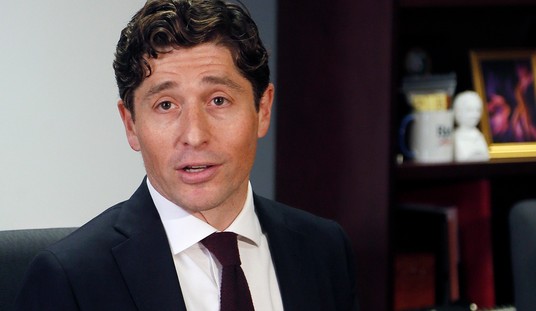The White House has finally determined that government collection and retention of telephone data has become too toxic to defend any longer. Barack Obama will move to end the NSA surveillance program that collected and stored the data, instead asking the telephone companies to retain it in case they need to access it — authorized by a court order:
The Obama administration is preparing legislation that would end the National Security Agency’s widespread collection of Americans’ phone data while, officials say, preserving the government’s ability to gain information about terrorists.
The legislation, senior officials say, would allow data about phone calls made to and from Americans to be kept with the phone companies. The companies would not be required to hold the data longer than they normally would. …
The proposal, which is still being worked on, would require phone companies to provide data about suspected terrorist numbers under a court order, officials said. It would include making available on a real-time, ongoing basis data about any new calls made to or from the suspect’s number after the order is served — an idea embraced by NSA leaders, officials said.
Actually, Obama wants Congress to end the program, even though Congress never explicitly started it:
Officials confirm @nytimes story on #NSA proposed change but still needs congress to pass law til then no change
— Andrea Mitchell (@mitchellreports) March 25, 2014
Congress passed the PATRIOT Act, which Obama supported as Senator and then as President, including the Section 215 language that the NSA and Obama insisted gave permission for the NSA’s program. The text of Section 215, however, only expands the authority of the FBI to access data as part of a court order. The argument that this allows the NSA to conduct its mass collection of data is one advanced by both the Obama and George W. Bush administrations as an executive-branch interpretation.
The New York Times offers a helpful recap of that history:
The N.S.A. uses the once-secret call records program — sometimes known as the 215 program, after Section 215 of the Patriot Act — to analyze links between callers in an effort to identify hidden terrorist associates, if they exist. It was part of the secret surveillance program that President George W. Bush unilaterally put in place after the terrorist attacks of Sept. 11, 2001, outside of any legal framework or court oversight.
In 2006, as part of a broader Bush administration effort to put its programs on a firmer legal footing, the Justice Department persuaded the surveillance court to begin authorizing the program. It claimed that Section 215, which allows the F.B.I. to obtain court orders for business records deemed “relevant” to an investigation, could be interpreted as allowing the N.S.A. to collect domestic calling records in bulk. …
Marc Rotenberg, the executive director of the Electronic Privacy Information Center, called the administration’s proposal a “sensible outcome, given that the 215 program likely exceeded current legal authority and has not proved to be effective.” While he said that he would like to see more reforms to other surveillance authorities, he said the proposal addressed the major concerns with the bulk records program.
In other words, this doesn’t require an act of Congress to end, especially since the proposal won’t require telcos to retain records any longer than they currently do or for any particular period of time. Obama could order the NSA to simply stop collecting the data. After all, there is literally nothing in Section 215 of the PATRIOT Act that requires NSA to perform this task; it doesn’t even mention the NSA at all, only the FBI.
So why doesn’t he do so? Obama has certainly had few issues with taking executive action for his own agenda, and then publicly bragging about it. This looks like an attempt to have Congress take the responsibility for killing this program in case anything happens afterward — a way to dodge responsibility for the consequences, in other words. Congress should politely remind Obama that this actually does fall within the executive branch’s authority and suggest that what the executive branch orders, it can also stop all by itself.
Gabriel Malor notes that a couple of the provisions in this would require Congress to act:
@EdMorrissey Contours of those court orders comes from statute. From the NYT, this would also require legislation: pic.twitter.com/5sF4y5AcEa
— Gabriel Malor (@gabrielmalor) March 25, 2014
These are fair points, but the interpretation from the executive branch already is that Section 215 allows for bulk data collection. If they’re stopping that, then this is (a) an academic point, and (b) no impediment to stopping it now. The same is true for granting the executive branch a “judicial role” in seeking records, because the process in place would have the judiciary perform it until Congress acts — and in that case, it sounds like a bad idea anyway. And again, it would be no impediment to stopping the massive collection now either.








Join the conversation as a VIP Member